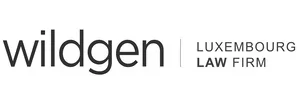Entrepreneurs are often discouraged by a vicious circle: on the one hand, fear of failure encourages them to incorporate a company in order to benefit from limited responsibility and consequently to limit their financial risk but, on the other hand, the high cost to incorporate a company demotivates them.
On the 21st January 2015, the cabinet of the Luxembourg government suggested a solution to break the vicious circle and adopted a bill of law on the establishment of a new type of legal form, namely the simplified private limited liability company ("société à responsabilité limitée simplifiée" or "S.à r.l.-S") (the "Bill"), also known in Luxembourg as the "EUR 1 Company" or the "111 Company".
The S.à r.l.-S, although mainly based on the legal dispositions of a classic private limited liability company, is designed to allow a natural person who wishes to test and develop a business innovative idea to create a company within a limited time period and with one single euro as starting capital.
With the introduction of this new type of company, the Luxembourg Government aims to promote and foster the entrepreneurial culture and the entrepreneurship spirit in Luxembourg, and consequently to drive economic growth. Besides, the government believes it will contribute to social inclusion, allowing many jobseekers to create their own jobs and as such avoid unemployment.
As such, Luxembourg follows in the footsteps of its neighboring countries which already introduced a similar type of company, namely the SPRL-Starter in Belgium, the Entrepreneur individuel a responsabilité limitée (EIRL) in France and the Mini-GmbH in Germany. Nevertheless, Luxembourg, known for its pragmatism, intends to become a challenger and subsequently a leader on the start-up market, instead of remaining in the position of follower. Therefore, an excellent legal framework is essential.
Hence, we allow ourselves to present the following main characteristics of the S.à r.l.-S:
- Only natural persons are allowed to incorporate one single S.à r.l.-S each. Legal entities cannot incorporate a S.à r.l.-S.
- It is not allowed to have a corporate capital higher than the minimum capital of a "classic"
- S.à r.l. (EUR 12,394.68) and therefore a S.à r.l.-S might not be suitable for all types of activities.
- The corporate purpose must mandatorily aim to the pursuit of activities for which a business permit is required, as commercial, craft and industrial activities.
- A S.à r.l.-S may be incorporated under private seal, per notarial deed and per special act. The incorporation deed shall be published.
- A non-distributable legal reserve funded on a yearly basis by the allocation of 5% of the net profits shall be created. When the aggregate amount of the legal reserve and corporate capital will reach EUR 12.394,68, this allocation will cease to be compulsory.
Some items, such as limiting the existence of the S.à r.l.-S in time and the necessity of transforming it into a "classic" S.à r.l. after a few years, remain however important points of discussion.
Nonetheless, the S.à r.l.-S shall in any case reduce the costs of incorporation of a new company by means of an incorporation process designed to be more efficient, simple and less time-consuming.
The content of this article is intended to provide a general guide to the subject matter. Specialist advice should be sought about your specific circumstances.

